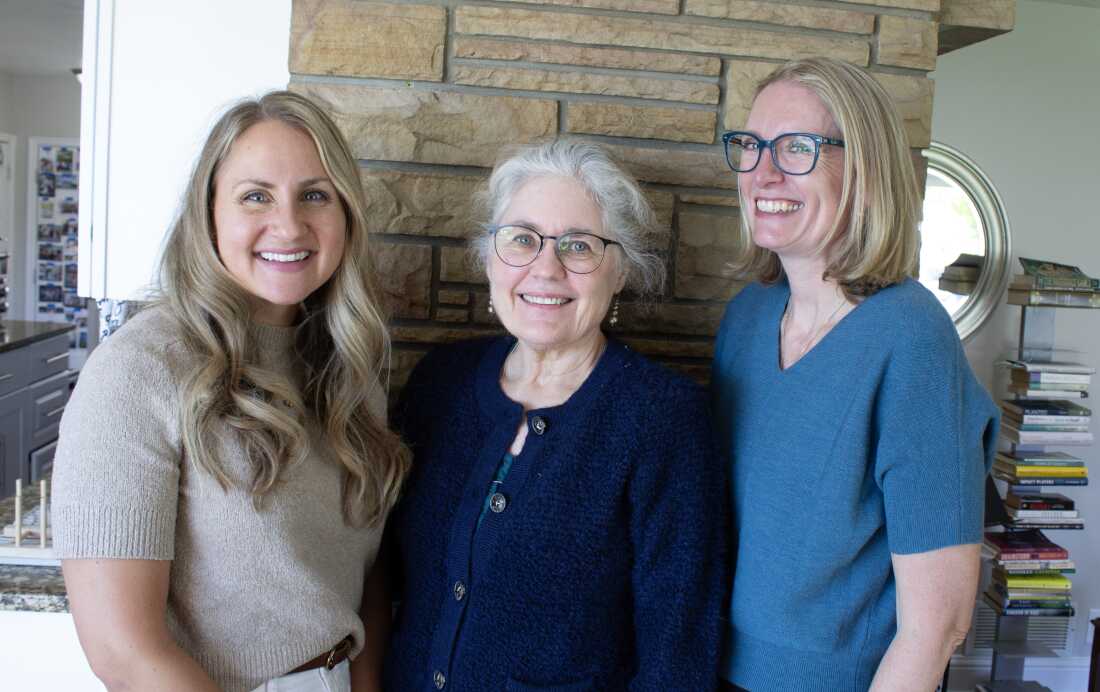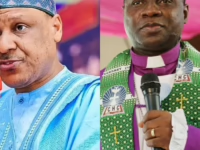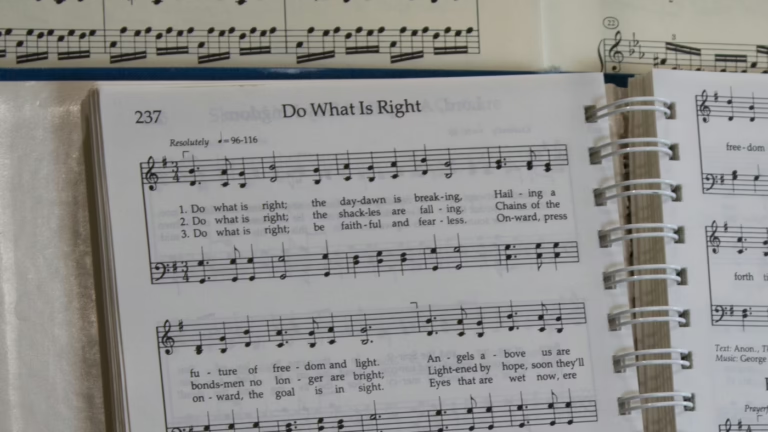The hymn shown on the piano of a Mormon Women for Ethical Government leader serves as a source of inspiration for one of the plaintiffs driving the lawsuit that compels Utah legislators to redraw congressional districts.
Saige Miller/NPR
hide caption
toggle caption
Saige Miller/NPR
Emma Petty Addams, a professionally trained pianist and piano instructor, has temporarily set aside her musical pursuits.
“Playing piano is a big part of who I am, and I look forward to returning to it. But right now, preserving our democratic republic takes precedence,” Addams shared with a smile during a recent conversation.
As co-executive director of Mormon Women for Ethical Government (MWEG), Addams is actively involved in a lawsuit that has compelled Utah’s lawmakers to redraw the state’s four congressional districts.
Speaking from her home in a Salt Lake City suburb, Addams was accompanied by Vicki Reid, a fellow MWEG member and individual plaintiff in the case, who views their legal challenge as an expression of her faith as a member of The Church of Jesus Christ of Latter-day Saints.
“A hymn that resonates deeply with me includes the line, ‘Do what is right, let the consequences follow,'” Reid reflected.
The sheet music for this hymn rests on Addams’ piano, symbolizing the unfolding consequences now visible in the Utah Legislature and potentially influencing redistricting efforts nationwide.
Redistricting Unfolds Amid Trump’s Push for Congressional Control
Following a court mandate triggered by the lawsuit, Utah’s legislature approved a new congressional map on Monday designed to enhance Democratic competitiveness in a predominantly Republican state. This map awaits judicial approval.
Meanwhile, former President Trump has ignited a nationwide redistricting movement, urging Republican-led states to redraw districts in ways that bolster GOP representation in Congress. He criticized the court’s decision in Utah, calling on residents to be “outraged at their activist judiciary.”
Utah’s Republican lawmakers, though complying with the court order, express dissatisfaction. State Representative Candice Pierucci argued that the plaintiffs represent special interest groups rather than the broader Utah electorate.
“They don’t answer to Utah voters,” Pierucci stated.
Typically, redistricting occurs once every decade following the census. However, Trump’s influence has prompted states like Texas and Missouri to redraw districts mid-cycle to favor Republican candidates, a trend that may spread.
MWEG’s Longstanding Commitment to Fair Redistricting

Laura Eyi, Vicki Reid, and Emma Petty Addams of Mormon Women for Ethical Government meet at Addams’ residence.
Saige Miller/NPR
hide caption
toggle caption
Saige Miller/NPR
Since its inception in 2017, MWEG has focused on combating what it describes as “dehumanizing conduct” within government. The organization boasts approximately 9,000 members nationwide, predominantly from The Church of Jesus Christ of Latter-day Saints. Addams notes that about 40% of members identify as Republicans, including herself, 34% as Democrats, with the remainder affiliating as independents or third-party supporters.
Laura Eyi, MWEG’s public relations lead, admits that while members often hold differing political views, their shared faith fosters unity.
“Our church members engage in politics with respect and honor for those with opposing views,” Eyi explained. “This approach is deeply rooted in our spiritual beliefs.”
The group’s primary focus on safeguarding democratic principles naturally led them to address redistricting.
“In many states, redistricting is a partisan battle between Democrats and Republicans,” Addams said. “In Utah, however, it’s a bipartisan effort grounded in principle, striving to create the most representative government possible.”
In 2018, Utah voters approved the creation of an independent commission to oversee redistricting, aiming to reduce partisan gerrymandering that manipulates district boundaries for political gain.
Despite this, Utah’s Republican supermajority legislature reclaimed redistricting authority, effectively nullifying the voter-approved commission. Subsequently, lawmakers enacted a map that fragmented Salt Lake County-the state’s most Democratic region-across four congressional districts.
In response, MWEG, alongside the League of Women Voters and individual plaintiffs, filed a lawsuit in 2022. A Utah district court judge ruled that the legislature had exceeded its authority, mandating a new redistricting process.
Judicial Review Awaits the New District Map
Vicki Reid, a moderate Republican and MWEG member, joined the lawsuit with her husband, a Democrat.
“Utah is a red state, but over half the population supports fair maps,” Reid emphasized. “The legislature must heed the will of the people, which wasn’t happening.”
Currently, Republicans hold all four congressional seats. GOP leaders argue that the state constitution grants exclusive redistricting power to the legislature. “The Utah Constitution clearly assigns map-drawing authority solely to the legislature,” Pierucci told NPR. Republicans are prepared to escalate the dispute to higher courts if necessary.
For now, the legislature’s newly approved map will undergo judicial scrutiny. MWEG and other plaintiffs will have the opportunity to provide input. Addams maintains that the legislature’s proposal still falls short of the nonpartisan standards voters demanded.
“MWEG stands with thousands of Utahns who opposed the legislature’s partisan gerrymandered map, which violates voter-mandated requirements,” Addams stated.






















